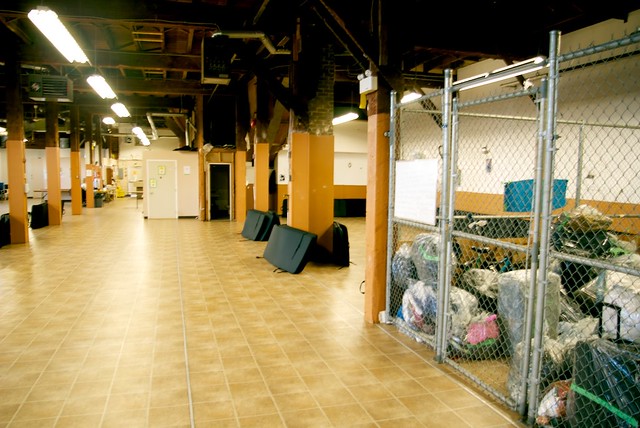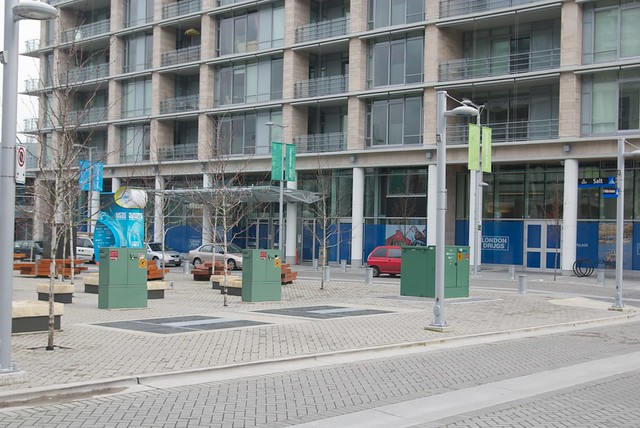By deciding to arrest the group of eight, Mayor Robertson made a clear choice, sending a clear message. Robertson is no longer the “End Homelessness” Mayor. Robertson created almost no new social housing during his first term. His one and only significant initiative was opening these emergency shelters, which concluded in this “week of shame” of 200 evictions and eight arrests.
The Broadway and Fraser St shelter was the fourth shelter this week slated for closure by the City and Province. The shelter is the largest of the four, and is widely understood to be the safest for women. The City-owned space will now sit empty for at least the next six months.
A rally was held outside the shelter Friday morning, attended by over 50 shelter supporters. There were speeches by shelter residents and housing advocates. “Some of my friends here are probably going to die if we are forced back to Downtown Eastside SROs,” said one shelter resident.
The evictions were to be complete by 11am, but several dozen residents and advocates occupied the large building. Throughout the day, activists helped residents negotiate with BC housing for better “alternative arrangements.” Activists promised to leave the building only once each shelter resident had secured appropriate alternative arrangements.
Meanwhile a delegation went to Christy Clark’s campaign office, refusing to leave until they met with Premier Clark (see CBC article). Clark sent the Housing Minister Rich Coleman to meet with the delegation. The meeting was sometimes heated, but the feeling of the dozen attendees was that Coleman’s arguments in favour of shelter closures fell apart upon discussion, but he remained extremely stubborn and arrogant. Afterwards, Coleman made nonsensical and rambling comments to the press, as reported by CKNW:
Coleman says everyone has been offered housing, but not everyone has taken it,”Instead of working with us and understanding what the long term plan is, and just working with us on a long term plan, it’s just never enough…And so it’s never enough for them so they want to find something they can hang their hat on every once in awhile to be activists about, and I don’t know why.”
Activist Wendy Pedersen says low barrier shelters are critical to giving people a place to land if housing options don’t work out, “We have a goal and that’s to end homelessness. Until people are not homeless, we’re not going to be happy, and somebody has to keep up the pressure, and that’s our role.”
At 8pm, back at Fraser & Broadway, there remained several dozen people in the shelter, including residents who were committed to keeping the shelter open. The shelter remained filled with the belongings of evicted residents. Police, under orders from City Deputy General Manager Brenda Prosken, told everyone to leave under threat of arrest. The squatters decided that a core group of eight would take a stand to keep the shelter open for all who need it. The group of eight sat in a circle in the middle of the shelter, putting the decision clearly to the City General Manager and Mayor: if you want to shut down this homeless shelter, the fourth in one week, you will have to arrest eight peaceful demonstrators to do so.
The eight were arrested and held in jail overnight in holding cells Main and Cordova. Upon release at 1pm on Saturday, they were greeted by cheering supporters who had set up a jail-solidarity camp
By deciding to arrest the group of eight, Mayor Robertson made a clear choice, sending a clear message. Robertson is no longer the “End Homelessness” Mayor. Robertson created almost no new social housing during his first term. His one and only significant initiative was opening these emergency shelters, which concluded in this “week of shame” of 200 evictions and eight arrests.
And where was Robertson himself throughout the week? Announcing his New Deal with developers to drive through massive, but unspecified, re-development of the central business district. I don’t remember that being a key Vision priority. Maybe they can build a condo tower on the site of the Howe St shelter.




